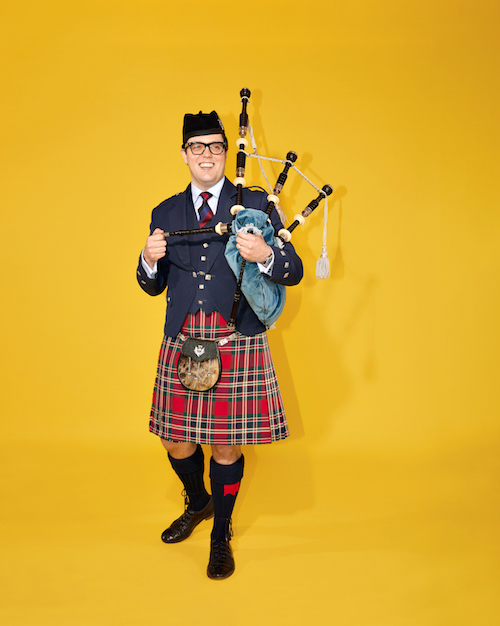A few years ago, Lionel Tupman had dinner with a client in the financial district. The restaurant had hired a bagpiper, who was flooding the room with music. At one point, Tupman turned to his dining companion and said, “What do you bet that I can play that guy’s bagpipes?” The client laughed doubtfully. So Tupman walked over to the musician, bought him a drink and asked if he could hold the instrument. For a moment, he pretended to be clueless. Then he let loose in perfect tune. “Little did my client know,” says the partner at Tupman & Bloom LLP, “I was a champion bagpiper.”

Lionel Tupman
Tupman & Bloom LLP
Tupman was inspired to take up the bagpipes as a four-year-old. On a family trip to the Highland Games, a celebration of Scottish culture, he had revelled in the instrument’s majestic sound. “According to my parents, I was awestruck,” he recalls. The bagpipes were also in his blood. In the First World War, his great-great-grandfather had been a piper in the Highland Light Infantry, a Scottish regiment of the British Army.
In short order, Tupman started to attend lessons. His talent was astonishing. At seven, he was playing in a piping band alongside adults in their 50s and 60s. Throughout his high-school and undergraduate years, Tupman was a full-fledged professional. He travelled around the world to compete against the most elite bagpipers, earning cash prizes along the way. At the height of his career, the weight of the bagpipes had caused a permanent bruise to form on his collarbone.
Once Tupman started law school, he scaled back on competition. These days, he still practises at home and performs at the occasional event. Before the pandemic, for instance, he played a recital at the University Club. Tupman has never lost his sense of wonder at the power of the instrument. “People say the bagpipes stir the soul, and I think that’s accurate,” he says. “You don’t need to be a competitive bagpiper to feel that.”
This is a story from our Spring 2021 Issue.
Photography by Steph Martyniuk.


